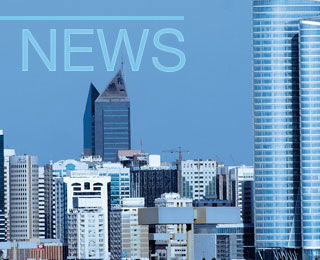For the 1Q25 France-based Vicat has reported stable sales of EUR886m when compared on a like-for-like (LfL) basis. On a reported basis, sales were down 2.7 per cent YoY from EUR911m, impacted by negative currency effects of EUR-30m, mainly due to the depreciation of the Turkish lira, Egyptian pound and Brazilian real against the Europe, said the company.
Sales by segment
In the 1Q25 consolidated sales in the company’s cement business edged up by 0.5 per cent at constant scope and exchange rates despite a drop of 6.8 per cent in volumes (mainly in India). Cement prices remained solid in most of the group’s operating areas. Cement volumes were down 6.8 per cent YoY to 6.413Mt.
A 8.2 per cent fall in concrete volumes in the 1Q25 to 2.025Mm3 and mixed pricing trends also affected the concrete and aggregate businesses but the group saw overall higher prices. Aggregate volumes were slipped by 1.7 per cent to 5.04Mt. Consolidated sales were down by 1.2 per cent YoY at constant scope and exchange rates.
In its Other Products and Services business, sales remained stable at constant scope and exchange rates, supported by a healthy performance in France and India.
Sales by region
However, its operations in France and the rest of Europe proved resilient and in Egypt the group saw continued momentum. However, the slowdown in India and Africa affected sales negatively.
In France 1Q25 sales increased by 3.9 per cent on a reported basis but slipped by 0.1 per cent LfL to EUR281m. The cement business was impacted by the weakness in the residential market but the decline slowed sequentially over the quarter. The downturn in residential volumes was only partly offset by the Lyon-Turin rail link project and cement operational sales fell by 4.6 per cent. Concrete and aggregates operational sales fell one per cent YoY while other products and services saw a 13 per cent increase on a reported basis.
In Europe (Switzerland and Italy) sales were up 2.8 per cent on a reported basis and by 6.5 per cent LfL to EUR95m, supported by cement activity in Switzerland, the introduction of a new low-carbon cement and major infrastructure projects. Cement operational sales increased by 6.5 per cent at constant scope and exchange rates. In addition, operational sales for the concrete and aggregates improved 10.9 per cent while other product and services sales were down in Switzerland. Meanwhile, in Italy, operational sales increased 3.7 per cent at constant scope as volumes rebounded and prices were stable.
The 1Q revenue in the Americas (USA and Brazil) slipped 0.5 per cent YoY on a reported basis but edged up 0.8 per cent YoY LfL to EUR221m. Cement operational sales in the USA fell 3.2 per cent at constant scope and exchange rates and by 0.2 per cent on a reported basis due to the appreciation of the dollar against the euro. The exchange rate effect also applied to concrete operational sales, which were down 2.4 per cent at constant scope and exchange rates but on a reported basis, they rose 0.6 per cent. In Brazil, volumes picked up and prices were stable, leading to a four per cent increase in cement operational sales constant scope and exchange rates although they declined 9.2 per cent on a reported basis as the real depreciated agains the euro. Healthy volume growth and higher prices in the concrete and aggregate segment saw operational sales rise 14.3 per cent YoY.
Business in Asia (India and Kazakhstan) was mixed, with a marked decrease in India, but Kazakhstan recorded growth supported by a hike in prices. In India, the fiercer competitive environment in the southern states continued to adversely affect prices and volumes, while positive dynamics again prevailed in Maharashtra (Mumbai). As a result, 1Q25 sales fell by 20.5 and 18.8 per cent on a reported and LfL basis, respectively, to EUR95m.
While reported sales in the Mediterranean region (Turkey and Egypt) were down 1.6 per cent, on a LfL basis sales expanded by 22.6 per cent to EUR103m on the back of the strong performance in Egypt. However, it was adversely affected by the sharp depreciation of the Turkish and Egyptian currencies against the euro over the period. Against a backdrop of persistent hyperinflation, the cement business in Turkey was impacted by unfavourable weather conditions and by political instability. Prices again moved higher to offset the effects of inflation. In Egypt, activity levels were boosted by strong growth in export volumes, with prices rising in both domestic and export markets.
In Africa, where the group has operations in Senegal, Mali and Mauritania, 1Q25 sales were down 9.9 and 10.1 per cent on a reported and LfL basis, respectively, to EUR91m. The competitive environment became more challenging in Senegal in cement as a new competitor entered the market while in aggregates operational sales dropped 26.8 per cent in Senegal as volumes fell due to delays in public infrastructure projects. Cement sales in Mali and Mauritania were also down – by 19.7 and 9.5 per cent, respectively at constant scope and exchange rates, affected by lower volumes and prices.
